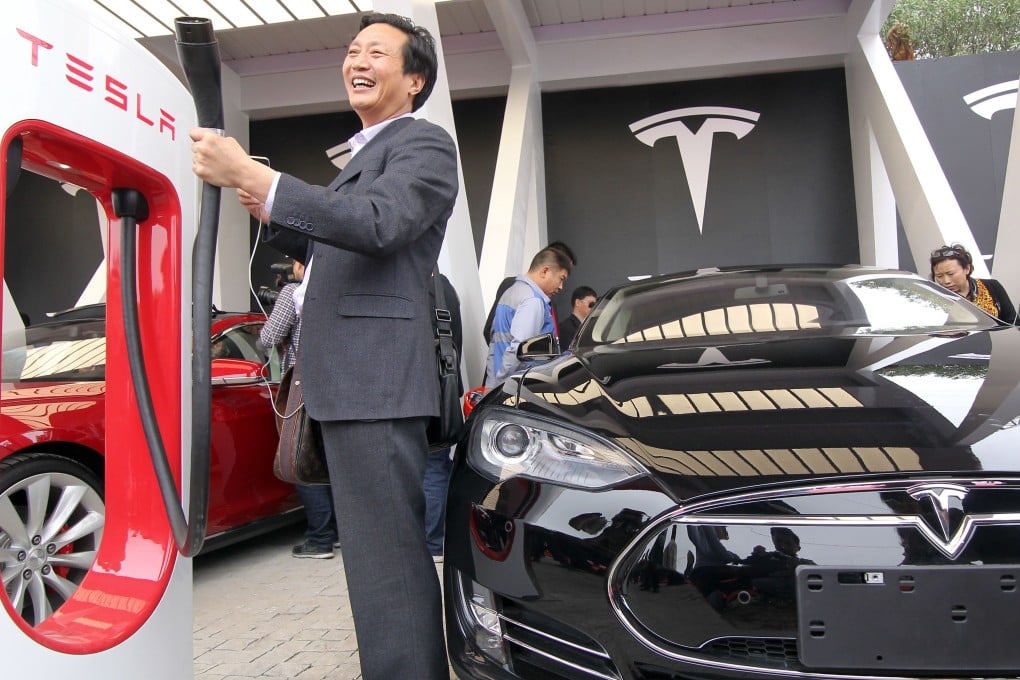In China, the early bird drives an electric car – but will it catch on for the rest?
Chinese authorities should look to electric car owners for clues on how to attract other drivers to follow suit

The adage “the early bird catches the worm” is often used to praise those with a pioneering spirit.
Mainlanders who spearheaded the move to own electric vehicles now have a bigger “worm” to catch – by using their experience of driving and owning an electric car to help the authorities draw up a practical and effective strategy to convince other motorists to join them .
Wisley Jin, a Zhejiang entrepreneur who drives a Tesla, attributes his purchase of the luxury electric car to group psychology and is bullish that more wealthy mainlanders will follow his lead to own an alternative-energy vehicle.
“Mainland people are not uncomfortable with being copycats,” he said. “They like to buy the things that others own as long as they prove to be useful and worth the money.”
Topping up his batteries at a “supercharging” facility built by Tesla in Jinqiao, Shanghai, Jin said that it was not just his car’s energy efficiency that gave him a sense of achievement.
“It’s an ideal mode of transport and more charging stations would make it more attractive.”
